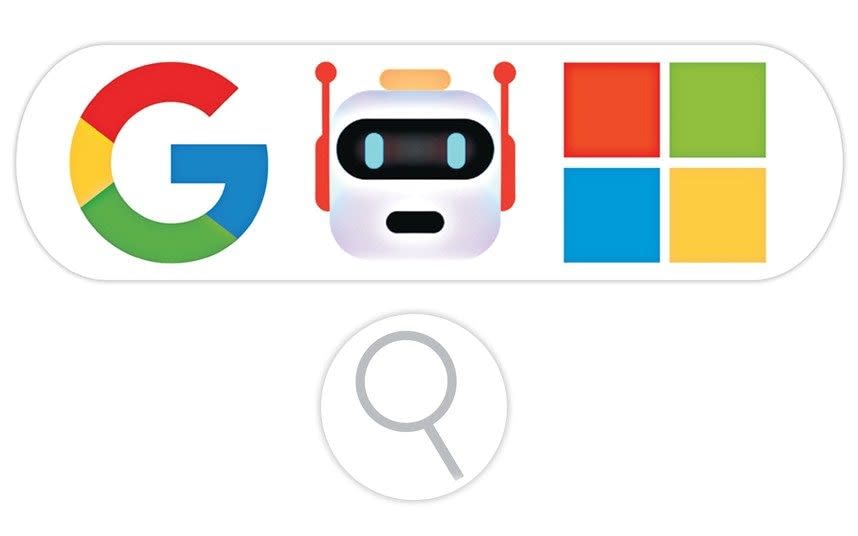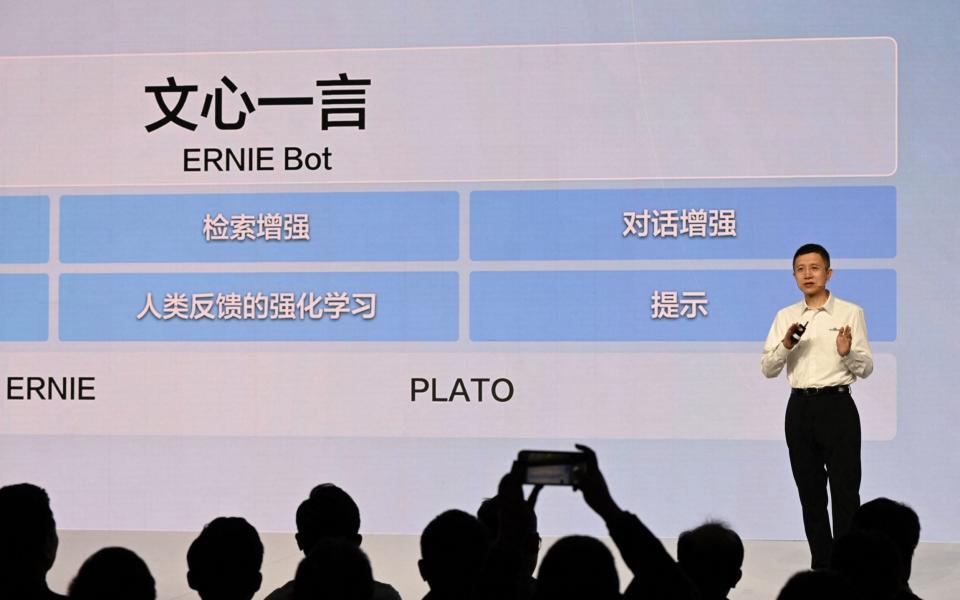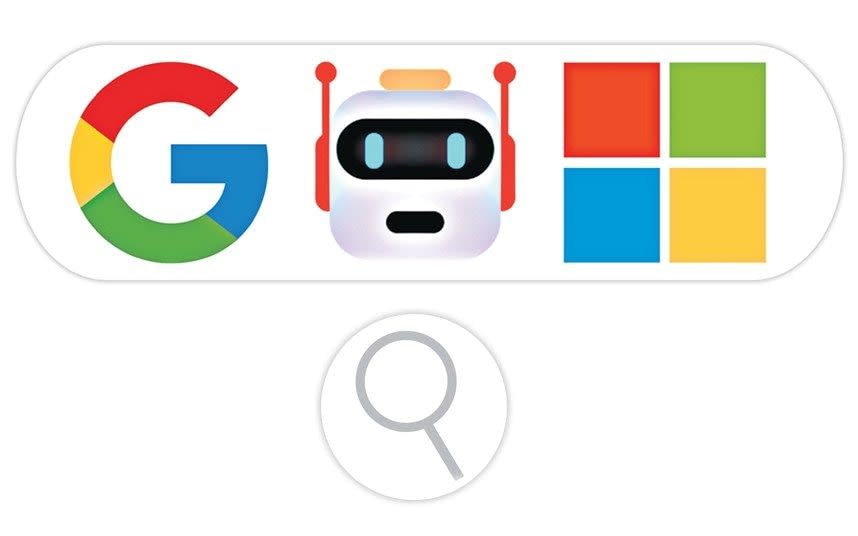
If you are stuck for an opening question the next time you are playing around with your favourite chatbot, there is an obvious one to open with. ‘How many artificial intelligence systems are there now on the market?’
The list is growing with every day that passes.
Last week, Amazon joined the fray, with the launch of its Bedrock service, joining offerings from Google, Microsoft and, of course, OpenAI with its ground-breaking ChatGPT, the programme that started the whole global craze.
The list is growing all the time.
These AI systems that can write essays, compose poems, design code, or put together websites. They are an amazing and impressive technology. But they are also about to turn into a bloodbath for investors.
There is no obvious revenue stream, competition is about to get brutal and the costs of running them are about to spiral out of control.
It will be very hard to persuade more than a handful of people to upgrade to paid-for versions of the software and Alexa, Amazon’s rival voice-operated chat system, didn’t make any money.
Right now, it doesn’t look as if the AI-driven chatbots will do any better.
There is no getting away from the hype around AI systems.
The success of ChatGPT has the entire technology industry worried about its future, and every major company is quickly launching its own rival.
On Friday, Amazon, always the most ruthlessly competitive of all the major tech giants, joined the fray with the launch of Bedrock, a suite of software services that will allow companies to customise their own AI chatbot.
It is entering an increasingly crowded field.
Late last month, Google started trials of its Bard system in the UK and the US.
Microsoft is letting people join the waitlist for its ChatGPT-backed Bing system and has made a $10bn investment in OpenAI, which created the pioneering ChatGPT.
In China, Alibaba and Baidu have both launched AI systems, which will tell you what a wonderful job the ruling Communist party is doing of steering the nation towards peace and prosperity if you feel like asking.
Plenty more systems will no doubt be on the way soon.
At this rate, it can’t be long before President Macron announces a few billion in funding for an EU-sponsored chatbot, answering every question in French and adding a few criticisms of Brexit to every answer.
The race is hotting up.
The plurality of choice is great for consumers, of course. Very soon we will be able to ask intelligent, polite and well-informed AI assistants to perform all sorts of useful administrative and research tasks.
The technology will transform productivity for white-collar workers (‘Hey, can I have two ideas for a business section column please, complete with relevant stats?’) and allow many of us to work both more efficiently and more effectively.
Much like the web and smartphones, very soon we may find it hard to imagine how we ever functioned without the technology.

The trouble is, it will also be a bloodbath for investors.
There are four big problems. First, there is no very obvious revenue stream.
Unlike search or most social media, on a chatbot there is no very obvious place to put an advert, and it is not clear that anyone will ever be able to design the kind of precision marketing that made both Google and Facebook such formidable money making machines.
If you interrupt an answer to bring a brief message from a sponsor then it will just be an annoying distraction, and if you distort the results to suit an advertiser then the whole product becomes completely pointless.
Like podcasting, the audiences might be huge but the revenues tiny (for all the hype, the podcasting industry still only has about $20 billion of global revenues).
Next, the competition is already brutal and will only get worse.
We are seeing fresh launches with almost every week that passes, and there will soon be a lot more as all the venture capital firms start backing new companies aiming to muscle into the space.
Even worse, one company may walk away with the whole market, as Google did with search, or Facebook did with social media.
If you aren’t the big winner, you will be left with a tiny market share.
Thirdly, it will be very hard to persuade people to upgrade to paid from free versions.
ChatGPT already has a premium version, and others will be along soon, but there is not much evidence yet that people are willing to pay for the service.
They will take a lot of persuading. As Elon Musk has discovered at Twitter, people are reluctant to pay for something they used to get for free.
Finally, the server costs will be horrendous. AI systems demand vast quantities of computing power.
The more they are used, the more it will all cost.
There are already reports that ChatGPT is costing $100,000 a day to run. Once systems get bigger that sum will rise by ten or a hundred-fold. It is a heck of a lot of money.
Amazon’s Alexa and other smart speakers launched by Apple and Google were impressive gadgets.
They could answer questions fluently and confidently, much like this new wave of smart chatbots. But these speakers didn’t make any money.
Recent job cuts at Amazon have fallen heavily on the team behind Alexa
Right now, investors are getting very excited about the potential for AI chatbots.
A company just has to hint at launching one, or find a clever way of integrating them, and their share price immediately jumps.
People are assuming that anyone who gets in early enough will make a fortune.
Sure, it is certainly an amazing technology. But that doesn’t mean it will ever be able to make anyone any money. In reality, they could very quickly turn into a bloodbath for investors – and a tonne of money will be lost in the process.











Add Comment